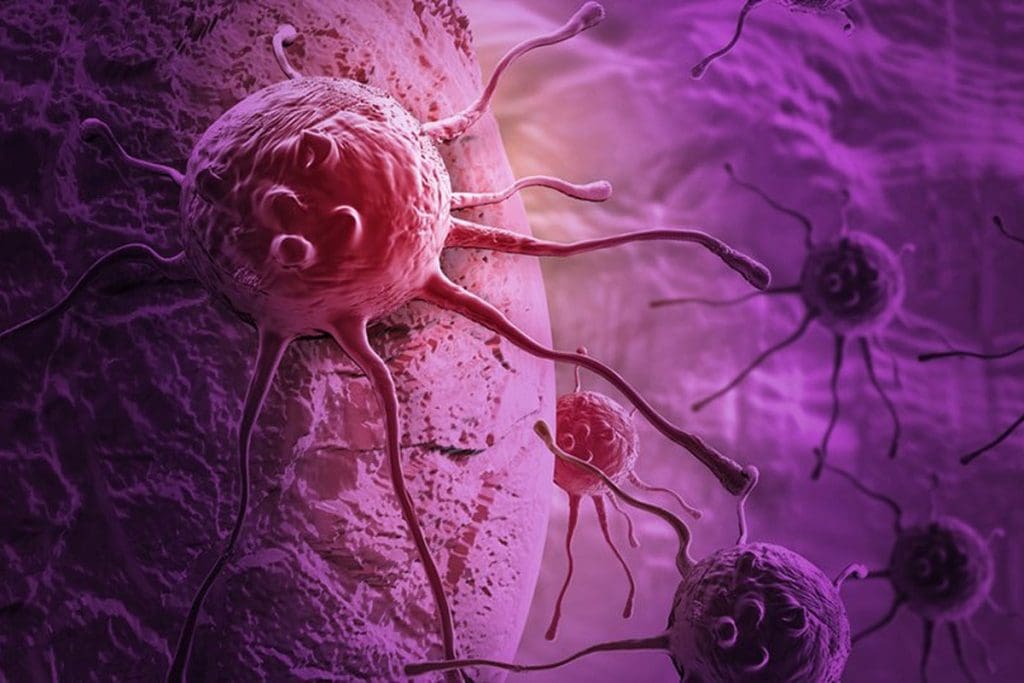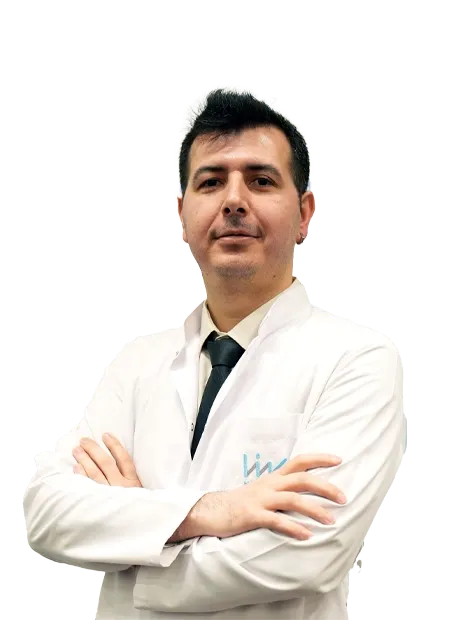
In 2025, we’re on the edge of a new era in cancer care. The American Cancer Society says there will be 2,041,910 new cases and 618,120 deaths in the US. This highlights the urgency of developing new medical treatments.
Big steps are being made in immunotherapy, precision medicine, and artificial intelligence. These changes are changing how we treat cancer. They help make things more effective to improve the lives ofe life for patients.
With more cancer cases worldwide, doctors are racing to find new ways to help. We’re dedicated to top-notch healthcare and support for patients from around the world.
Key Takeaways
- Advances in immunotherapy and precision medicine are transforming cancer care.
- Artificial intelligence is playing a key role in better patient outcomes.
- The number of new cancer cases keeps going up, showing we need new treatments.
- We’re committed to giving full support to patients from other countries.
- New treatments are being developed to make patients’ lives better.
The Global Cancer Landscape in 2025
As we near 2025, the world’s cancer situation is changing a lot. Cancer is a big health problem, affecting millions and putting a strain on healthcare and economies. It’s causing nearly 10 million deaths each year.
It’s important to know about cancer worldwide. This helps us see why we need new treatments and research.
Current Cancer Statistics Worldwide
Cancer numbers are alarming globally. More people are getting cancer due to aging, lifestyle changes, and better tests. In 2020, over 18 million new cases were reported, and this number is expected to rise.
The most common cancers vary by area. But lung, breast, and colorectal cancers are the top worldwide.
Cancer’s impact goes beyond just numbers. It affects patients, families, and healthcare systems. Moving forward, we need better care and support. New, targeted treatments are showing promise for better patient outcomes.
United States Cancer Burden
In the US, cancer is a big issue. The American Cancer Society expects 2,041,910 new cases and 618,120 deaths in 2025. This shows we need more research, early detection, and effective treatments.
The US has made progress in cancer care. Survival rates for some cancers have improved. But there are gaps in care and outcomes.
To tackle the US cancer burden, we’re working on better access to care and early detection. We’re also focusing on developing more effective treatments. The question of a cancer cure is complex. While progress has been made, there’s much more to do. The future of cancer care relies on ongoing research, innovation, and teamwork.
The Evolution of Cancer Treatment in Recent Years
Recent years have brought big changes in cancer treatment. Breakthroughs in precision medicine and immunotherapy are leading the way. These advances are changing the face of cancer treatment, thanks to new research and technology.
Major Shifts in Treatment Approaches
The old way of treating cancer, where everyone got the same treatment, is fading. Precision medicine is changing this. It lets doctors tailor treatments to each patient’s cancer, making treatments more effective.
Immunotherapy is also playing a big role. It uses the body’s immune system to fight cancer. This method offers hope to those with cancers that were once hard to treat.

The Impact of Research Acceleration
Fast progress in cancer research is driving these changes. Discoveries are leading to better treatments and longer lives for patients. This is thanks to the quick pace of research.
As research keeps moving forward, we can look forward to even more progress. The future of cancer care will likely include more precision medicine, immunotherapy, and other new treatments.
Revolutionary Immunotherapy Advancements
Immunotherapy has made a huge leap with the FDA’s approval of 12 new drugs. This marks a new era in cancer medicine. These breakthroughs are changing how we treat cancer, giving hope to patients everywhere.
The 12 New FDA-Approved Immunotherapy Drugs
The FDA’s approval of 12 new immunotherapy drugs is a big win for therapies in cancer. These drugs have shown great results in trials, helping patients live longer. They target specific cancers, like leukemia, which is on the rise in places like California in 2023.
- Drug 1: Targets specific tumor mutations, making the body’s immune response stronger.
- Drug 2: Uses mRNA vaccine tech to make immunotherapy more effective.
- Drug 3: Combines immunotherapy with other treatments for better results.
Clinical Outcomes and Success Rates
The results of these new drugs are very promising. For example, mRNA vaccines are showing great promise in trials. This shift towards more personalized treatments is leading to better results for patients.
- Patients with previously untreatable cancers are living longer.
- Patients are experiencing fewer side effects, improving their quality of life.
- More patients are responding well to immunotherapy, making it a more effective option.
As we keep pushing forward in immunotherapy, we’ll see even more progress in cancer treatment. New technologies and strategies will be key in shaping the future of cancer medicine.
Precision Medicine: Personalizing Cancer Care
Precision medicine is changing cancer care by making treatments fit each patient’s unique genetic profile. This method has shown great promise in boosting treatment success and survival rates. By looking at a patient’s genes, doctors can find the best treatment for their cancer.
Genetic Profiling for Treatment Selection
Genetic profiling is key in precision medicine. Doctors use genetic data to pick the right treatments. They look at cancer cell mutations and find targeted therapies that work best.
Key benefits of genetic profiling include:
- Identifying specific genetic mutations driving cancer growth
- Selecting targeted therapies that are most likely to be effective
- Avoiding treatments that are unlikely to benefit the patient
Integrating Protein and Environmental Data
Adding protein and environmental data gives a fuller picture of the disease. This approach helps doctors create better treatment plans. For example, looking at protein levels can reveal new therapy targets.

As we keep improving precision medicine, cancer treatment will get even better. By mixing genetic data with other types, we’re getting closer to personalized cancer care.
Artificial Intelligence Revolutionizing Cancer Detection
Artificial intelligence is changing how we detect and treat cancer. It’s making diagnosis more accurate and efficient. AI is key in the fight against cancer.
Enhancing Diagnostic Accuracy
AI is helping doctors spot cancer better. It uses advanced algorithms to look at medical images. These systems can find things we can’t see.
AI also makes images clearer. This helps doctors know the type and stage of cancer. Knowing this is important for the right treatment.
Optimizing Treatment Plans
AI is making treatment plans better, too. It looks at patient data like genes and medical history. This helps doctors create plans that fit each patient.
AI can also guess how well treatments will work. This helps doctors make better choices. It’s very useful for new treatments.
AI is becoming more important in cancer care. It’s bringing hope to patients and doctors. With AI, we can find new treatments faster and help more people.
Personalized Cancer Vaccines: The New Paradigm
Personalized cancer vaccines are changing how we fight cancer. They offer a new hope for patients everywhere. This shift in cancer care is a big step forward.
mRNA Vaccine Technology in Cancer Treatment
mRNA vaccine technology is very promising. It helps target cancer cells more effectively. This means vaccines can be made just for you, making them more powerful and safer.
Studies show mRNA vaccines can really boost the immune system against cancer. They work by teaching the immune system to attack cancer cells.
Key Benefits of mRNA Vaccine Technology:
- High specificity in targeting cancer cells
- Potential for fewer side effects compared to traditional treatments
- Ability to adapt to different cancer types
Clinical Outcomes and Patient Experiences
Clinical trials are showing great results for personalized cancer vaccines. They lead to better treatment outcomes and a better quality of life. This new approach is transforming cancer care.
Patients who’ve tried these vaccines have seen big improvements. They’ve reported fewer symptoms and better overall health. As research keeps improving, we can expect even better treatments in the future.
The future of cancer treatment is looking brighter with the advent of personalized cancer vaccines.
Breakthrough Cancer Treatment Options in 2025
In 2025, cancer treatment is changing fast with new therapies. Treatments are getting more tailored, effective, and easy to use. This change is thanks to endless research and innovation, giving hope to people all over the world.
Targeted Therapies for Specific Tumor Mutations
Targeted therapies are a big step forward in fighting cancer. They focus on specific mutations in tumors. This means doctors can pick the best treatment, leading to better results.
In California, 2023 saw a lot of new leukemia cases. Targeted therapies offer hope with effective and less harsh treatments.
Seven-Minute Injection Treatments
Another big leap is the seven-minute injection treatments. These new treatments aim to make therapy faster and less painful. They help patients get back to their lives quickly, improving their quality of life.
These new treatments are a big change in cancer care. They focus on making patients comfortable and happy without losing effectiveness. As research keeps moving forward, we’ll see even more improvements in cancer treatment.
Accessibility and Implementation of New Cancer Therapies
Breakthroughs in cancer care are happening fast. But making sure everyone can get these treatments is key. The availability and use of new therapies differ a lot around the world.
Global Availability of Breakthrough Treatments
Getting new cancer treatments worldwide is a big problem. Some places get the latest treatments quickly, but others face big delays or can’t get them. We need to make sure everyone can get these life-saving treatments, no matter where they are.
Many things cause this problem, like:
- Economic issues
- Different rules for treatments
- How good is the healthcare system?
We need to work together. Governments, healthcare teams, and drug makers must join forces. This way, new cancer therapies can reach those who need them most.
Insurance Coverage and Cost Considerations
Even with new cancer treatments available, money can be a big problem. High costs stop many patients from getting the help they need. We need to find ways to make treatments more affordable and get better insurance.
Steps are being taken to help:
- More insurance for new treatments
- Programs to help patients pay
- Work to lower costs between healthcare and drug makers
By tackling these issues, we can make sure all patients get the cancer treatment they need, no matter their money situation.
In summary, big steps are being made in cancer treatment, but making them available and affordable everywhere is a big challenge. We must keep working together to solve these problems. This way, we can make sure everyone gets the treatments they need.
The Future Landscape of Cancer Research
Cancer research is on the verge of big breakthroughs. Clinical trials and research are leading to new ways to fight cancer. This brings hope to patients all over the world.
Emerging Clinical Trials and Research Directions
New treatments are coming fast, thanks to tech and our better understanding of cancer. Immunotherapy, precision medicine, and AI-powered diagnostics are showing great promise.
“The future of cancer treatment is in personalized medicine,” says a top oncologist. This means treatments will match each patient’s unique genetic and tumor needs. It’s expected to greatly improve treatment results.
Collaborative Global Research Initiatives
The battle against cancer needs global teamwork and sharing data. Global research efforts are key to speeding up new treatments. They make sure these treatments reach patients everywhere.
Some main focuses include:
- Creating more effective targeted therapies
- Boosting cancer screening methods
- Improving patient care and support services
By teaming up, researchers and healthcare workers can share knowledge and resources. This leads to better cancer care for everyone.
As research keeps moving forward, we’ll see big improvements in cancer treatment. The future of cancer care looks bright. Ongoing research and global teamwork are leading us closer to a cure for cancer.
Conclusion: A Transformative Era in Cancer Care
We are at a turning point in cancer care, with many breakthroughs in research and treatment. These advancements are promising, with new therapies showing great promise. As we use the latest in medical research and technology, we’re getting closer to better patient outcomes and quality of life.
Everyone wonders: Is there a cure for cancer? We’re not there yet, but the progress in cancer cure research gives hope. Personalized vaccines, targeted therapies, and immunotherapy are changing how we fight cancer. We’re committed to finding a cure, driven by the progress and new therapies.
Looking ahead, cancer care’s future is bright. We’ll see more innovation, focusing on top-notch healthcare and support for patients. The work in cancer research and treatment shows the power of teamwork and the medical community’s dedication.
FAQ
What are the latest advancements in cancer treatment?
Breakthroughs in cancer treatment include immunotherapy, precision medicine, and artificial intelligence. These advancements have greatly improved treatment results and survival rates. They offer hope to those fighting cancer.
How is precision medicine transforming cancer care?
Precision medicine is changing cancer care by making treatments more personal. It uses a patient’s genetic information to find the best treatment for their cancer.
What is the role of artificial intelligence in cancer detection?
Artificial intelligence is key in cancer detection, mainly in imaging and diagnosis. AI tools are being developed to make diagnoses more accurate and faster.
What are personalized cancer vaccines, and how do they work?
Personalized cancer vaccines are a new way to treat cancer. They use mRNA technology to create vaccines that target specific cancer cells. This approach has shown great promise in clinical trials.
Are there new cancer therapies available, and how do they work?
Yes, new cancer therapies are available, including targeted therapies and quick injection treatments. These advancements offer better results and are more convenient for patients. They reduce the time and discomfort of traditional treatments.
How will the new cancer therapies be made accessible globally?
Making breakthrough treatments available worldwide is essential. It’s important to address insurance and cost issues to ensure global access to cancer treatments and support services.
What is the future of cancer research, and what emerging directions are being explored?
Cancer research has a bright future, with ongoing trials and research driving innovation. New directions, like AI and machine learning, are expected to lead to more advancements in treatment.
Is there a cure for cancer, and what is being done to achieve it?
While there’s no cure for cancer yet, significant progress has been made. Ongoing research and development of new treatments are key to finding a cure.
What is the current state of cancer treatment, and how is it evolving?
Cancer treatment is rapidly evolving, thanks to medical research and technology. The shift towards precision medicine, immunotherapy, and AI diagnosis is transforming the field. It offers new hope to patients and families.
How can patients access the latest cancer treatments and support services?
Patients can get the latest treatments and support by talking to their healthcare providers. They should look for cancer care centers that offer cutting-edge treatments and support.
References:
- Zheng, M. H., Lu, M. D., Gong, Y., Shi, Y. H., & Ke, A. W. (2009). Hepatoblastoma in adult: Review of the literature. World Journal of Gastroenterology, 15(30), 3704-3710. https://pmc.ncbi.nlm.nih.gov/articles/PMC3318863/



































